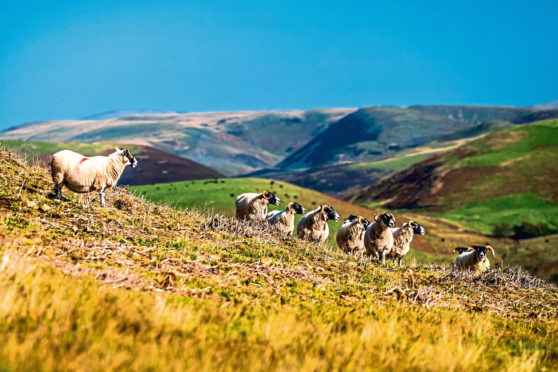As much as an extra £1 billion of farm support would come to Scotland if the proposed formula for divvying up UK agriculture funds outlined by Westminster’s Scottish Affairs Committee was applied to current budgets.
However, while such an outcome would undoubtedly be welcomed here, the likelihood of Wales, Northern Ireland and England accepting radical cuts in support in order to reward Scotland’s greater proportion of less favoured areas (LFA) was described by one senior industry figure at the report’s launch yesterday as “pie in the sky”.
The industry’s focus will now turn to the imminent report by Lord Bew into the intra-UK allocation of farm funding after Brexit, and whether the new prime minister will hold to his pre-election promise to return £160 million of EU convergence funds to Scotland plus £25m of additional support.
The Scottish Affairs Committee’s report on the post-Brexit future of Scottish agriculture advocates a complete rethink of farm funding to reflect Scotland’s higher proportion of LFA land and proposes an increase in the number of LFA categories to reflect the wide diversity found in the designation.
The farmers’ union, meanwhile, is nervous of arable and more intensive sectors losing out to the LFAs, and while NFU Scotland policy director Jonnie Hall welcomed the call for a fairer split of UK farm monies, he insisted additional funds couldn’t all go “up the hill”.
“It’s important that sectors currently receiving support continue to do so in the future and at levels equivalent to where we are currently,” he said.
“Each sector of our farming network is highly dependent on another and it is important that no one part of Scottish agriculture is disadvantaged or made uncompetitive as a result of Brexit impacts.”
Inevitably it was the prospect of an increasingly likely no-deal Brexit which dominated the discussion at the report’s launch, with politicians, rural economists and industry leaders all warning such an outcome would result in huge collateral damage.
Mr Hall said a meeting of the union’s board of directors this week had pledged “strident action in a public fashion” in the event of there being no deal, and in the meantime the union is stepping up its demands on government.
He said: “We are pressing for a reconsideration of the tariff schedule outlined in March which affords protection for some sectors but totally ignores others such as cereals, potatoes and eggs, and asking them to commit to find the money to underpin producers through what will inevitably be a turbulent time.”
